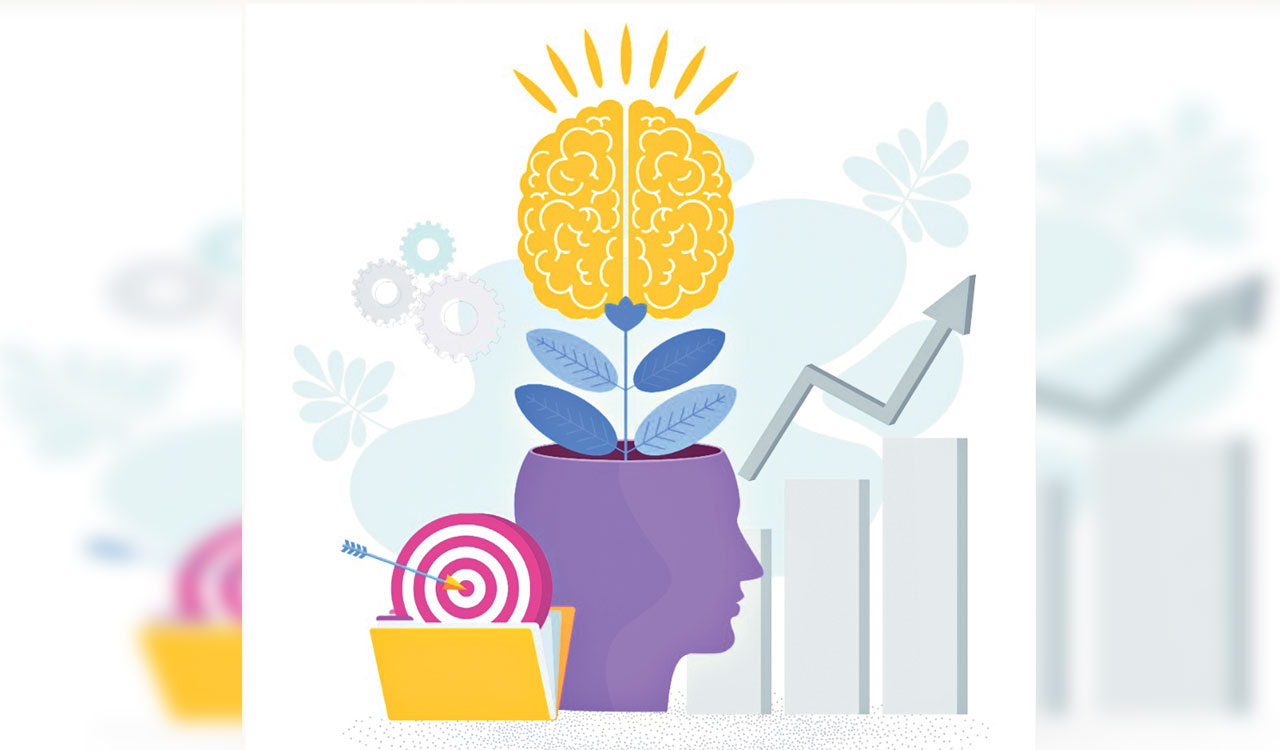Opinion: Growth Mindset in Education

Students with a growth mindset will perceive challenges and setbacks in an entirely different light — as an opportunity to learn
Published Date – 5 May 2025, 12:32 AM

By Jaskiran Kaur
During a recent coaching session, a mother shared a perspective that sheds light on a growing concern among parents today about their children’s future. Surprisingly, it’s not centred on education, career prospects, or even health choices. The real worry is about equipping their children with the ability to adapt to an ever-changing world.
The world is evolving at an unprecedented pace, reshaping not just our climate and technology but also the fundamental ways we live and interact. The future our children will inherit is unpredictable. These seismic shifts are influencing every facet of our existence, challenging traditional approaches and urging us to rethink systems, including our education system.
Traditional education systems fail to prepare children for the complexities of tomorrow. The answer lies in creating a powerful shift in the ethos and cultivating a growth mindset in education that can empower the next generation with resilience, adaptability and critical problem-solving skills essential for thriving in an unpredictable future.
Growth Mindset
The discussion around growth versus fixed mindsets is reshaping learning and development systems. At its core, a growth mindset is the belief that skills and talents can be learned, developed and expanded with the help of the right guidance and resources. This is in contrast to the belief in innate abilities and talents, which emphasises the fixed nature of intelligence.
Historically, educational systems have reinforced fixed mindsets by emphasising rote learning and standardised testing and, sometimes, even labelling children “gifted” and “average” based on test scores. Similarly, workplaces have also operated through rigid hierarchies, promoting resembling perceptions about intelligence.
Our educational systems have reinforced fixed mindsets by emphasising rote learning and standardised testing, even labelling children “gifted” and “average” based on test scores
Challenging these beliefs, Stanford psychologist Carol Dweck introduced the concept of Growth Mindset in her book ‘Mindset: The New Psychology of Success’ (2006). Dweck and her colleagues conducted research featuring ethnically and economically diverse students, demonstrating how students with a growth mindset were more likely to achieve their goals, be more resilient and solution-focused. In her study about academic tenacity, she explained that the key factor in fostering resilience is a student’s mindset about intelligence.
“Students with a fixed mindset believe that their intellectual ability is a limited entity, and they tend to worry about proving it rather than improving it,” researchers explain. “By contrast, students with a growth mindset will often perceive the identical challenge or setback in an entirely different light — as an opportunity to learn. As a result, they respond with constructive thoughts (eg, “Maybe I need to change my strategy or try harder”), feelings (such as the excitement of a challenge), and behaviour (persistence).”
Cultivating Growth Mindset means
• Viewing problems as learning opportunities
• Becoming a lifelong learner
• Accept challenges as part of life
• Persevere through setbacks
• Grow from feedback
• Drawing motivation from others’ success stories
• Building resilience
• And valuing effort
False Growth Mindset
A growth mindset isn’t simply about being open-minded or having a positive outlook towards situations in life. Neither does it mean to reject the idea of a fixed mindset. In 2015, Dweck spoke about acknowledging that we are all a combination of the two types of mindsets, and it will always be. However, identifying our fixed mindset triggers helps us on our true growth mindset journey.
Revisiting her concept, she expressed the concern of oversimplifying it. While praising the effort is significant in cultivating a positive mindset, it is being misused to hide the achievement gaps. Hence, she suggests that though effort and grit are the stepping stones to learning and development, students also need to explore, experiment and receive inputs from others.
People with a growth mindset do not believe that talent and intelligence are gifts, instead, we need to work for them. With the right strategy and effort, you can develop any skill. They look at the problems as an opportunity to improve.
Growth Mindset in Classroom
The key strategies to integrating a growth mindset in young minds begin with the educators’ mindset. Considering how influential teachers’ mindset beliefs are for students, the education system must take responsibility for improving their practice by learning a new way of thinking. It focuses on the learning journey in contrast to the result or the outcomes of it. To cultivate it, one must look at every opportunity as a chance to grow, and it stands true for students as well as teachers—placing value on learning and not simply on scores.
Failure is as important as success. Seeing it as a chance to grow fosters deeper learning. Expressing failure in more constructive ways can determine students’ attitudes on how they respond to it and make mistakes without the fear of judgment. And this quality is what makes them resilient.
Tools of mindfulness can be empowering in the journey of cultivating a growth mindset by enhancing self-awareness and focus. Staying present reduces the fear of failure and helps build resilience. Promoting positive self-talk can replace self-doubt and open up students to new experiences and possibilities. And, most importantly, it fosters a love for learning and growing.
Mindset Education and Curriculum
Teaching concepts like embracing failure, tackling challenges and reshaping negative thoughts equips students with the skills to handle setbacks with resilience. Activities like teamwork-based problem-solving, reflective journaling, and focusing on progress rather than perfection help bring growth mindset principles to life in a practical and relatable way.
Creating a holistic, supportive learning environment in school is a transformative step towards students’ growth and learning. A space that makes them feel included, valued, understood, supported and empowered to grow. Environment tending to their physical and emotional well-being and social connections through empathy and a nonjudgmental approach would allow them to flourish and reach their full potential in every area of life, just as it should be.
By fostering a growth mindset, we aren’t just preparing students for exams, we’re preparing them for life. The question is, are we ready to make this shift in our education system?

(The author is a certified Personal Growth and Mindset Coach)






